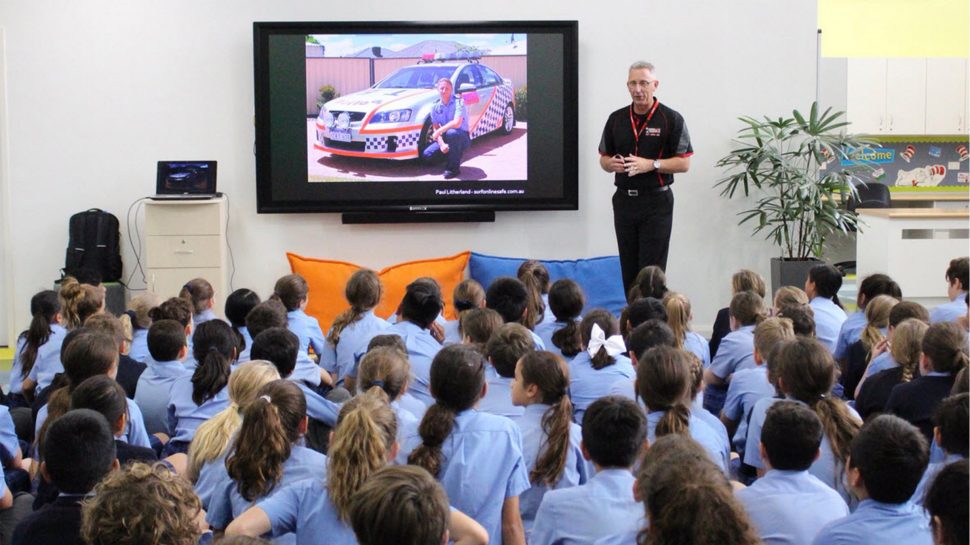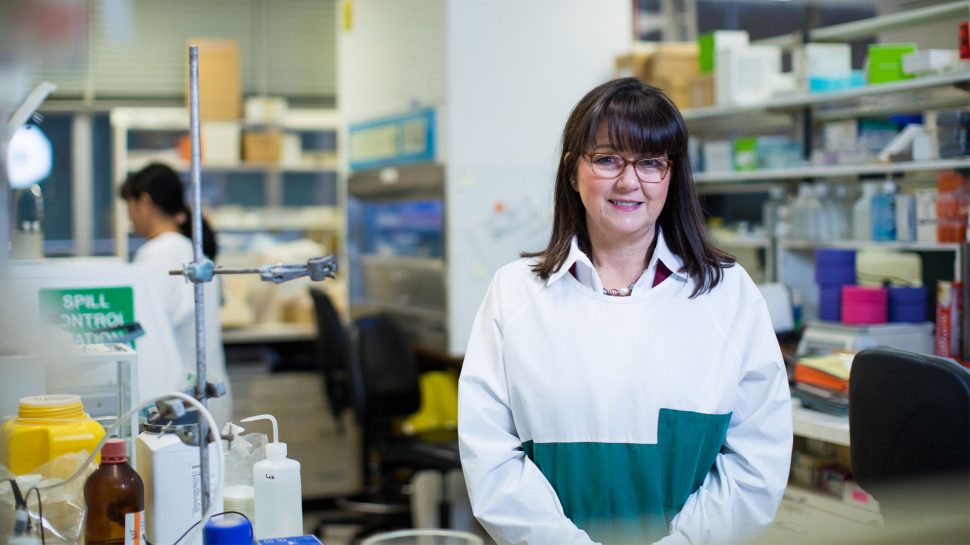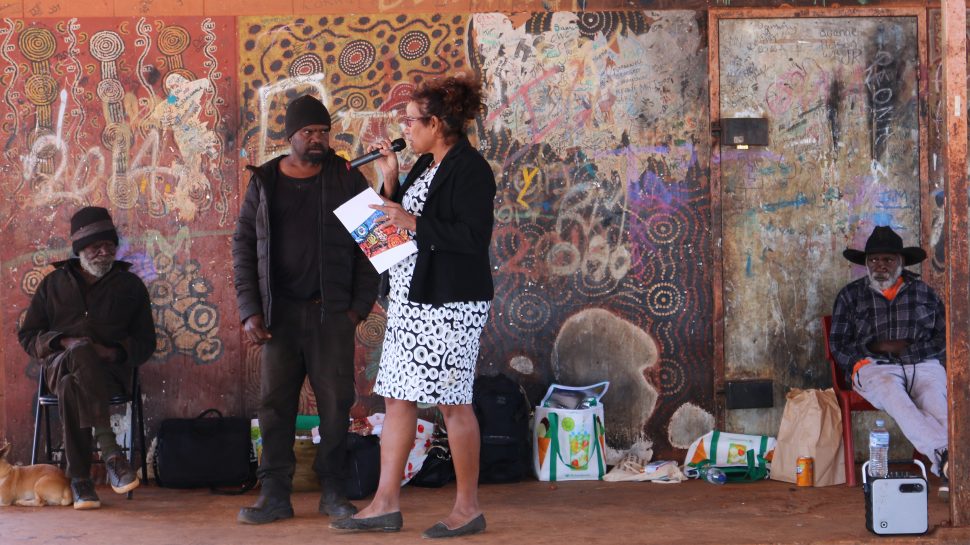Paul Litherland: Teaching cyber safety to parents and kids
The 2022 WA Australian of the Year, Paul Litherland, started Surf Online Safe to educate schools on cyber safety. He’s now recognised as Australia’s leading expert in tech crime. As part of our 2022 Australian of the Year series, Paul talks about the biggest misconception around cybercrime and his top three tips for staying safe online.

Paul Litherland spent the last five years of his police career in the Technology Crime Unit. Throughout that time, he took calls from distraught parents whose kids had fallen victim to cybercrime.
Many of those kids were close in age to his own son and Paul found himself developing a deep empathy for their parents. But alongside that was also a growing sense of frustration at the lack of legislation, awareness and assistance for those affected by cybercrime. Something clearly needed to change and Paul was ready to step up to the challenge.
Rather than fight the system head-on, Paul decided to take the education route and began getting in touch with schools about running cyber safety presentations for their students, parents and teachers.
Meet other extraordinary Australians
Meet other extraordinary Australians
Read the inspiring stories of our other recipients and discover how they’re making a profound and positive contribution to their communities.

What he thought would be a part-time gig quickly grew and led to him resigning from the police force to pursue it full time. In 2014, Paul founded Surf Online Safe and has since spoken at over 600 schools in the last eight years. He’s now recognised as Australia’s leading expert in cyber safety.
“It’s not until something goes seriously wrong - whether it’s being groomed, hacked or scammed - that you realise how poorly you’re protected online,” Paul says. “A lack of awareness and protection can cause people to be blasé with their risk-taking and makes them prone to being victims of cybercrime.”
Paul talks to us about the biggest misconception around cybercrime and his top three tips for staying safe online.
Tip 1: Slow down, take time to look around and trust your instincts. If it seems risky, ask questions and do your research.
What big educational gap in cybercrime are you still trying to close today?
"One of the biggest gaps is parents not knowing what their kids are actually doing online. Many parents say they’ll start paying attention when their kids are older but the online world is moving so quickly that you can’t take that risk. You need to know what’s happening with your kids right now."
How do you keep up with the speed at which the online world is moving?
"One of the benefits of working with schools is that kids are constantly talking to me and answering my questions. I’m always shocked by how advanced they are and the great lengths some will go to in hiding stuff from their parents. What deeply worries me is they don’t tell their parents when things go wrong. They suffer on their own. I’m trying to address this."
Tip 2: Have actual conversations about risks - and that goes both ways. Don't talk to your parents only when things go wrong and don’t criticise your kids.
A big misconception around crime in general is that people think it’ll happen to someone else. Is this prevalent in the cybercrime world too?
"Yes. I've been speaking to one school for the last five years about grooming. One student rang me recently to say he just went through exactly what I described. So they're still getting sucked into the whole idea of, 'I know what I'm doing. I'm aware.' This is why I keep telling kids to slow down online and take time to look for warning signs."
What gives you hope in the work you do?
"I'm starting to see a real cultural shift among preteens and teenagers around not being manipulated for their data. These are the people who will drive the change in how online playgrounds are built."
Do you also see your role as passing on the baton to the next generation?
"100%. I've had a few Year 12 graduates asking if they can work for me. These kids have known the internet their entire lives. If they deliver the same education as I am right now, it’ll be more relevant because they’ve grown through it. There’s a great opportunity to pass that baton on."
Tip 3: Get to know what online platforms your kids are using. Do your research and build your awareness and knowledge about the online world. Your kids won’t push back so hard when you know what you're talking about.
You’ve said that you'd like to challenge those creating online environments to focus on ethical and safety design. Can you elaborate on that?
"Everything in the physical world must meet certain design standards for user protection. We’ve not seen this much in the online world, especially on social platforms. It's tick-a-box, agree to the terms and conditions, and you’re on your own if something bad happens. We need these organisations to genuinely look after their users, and not just set up token and unresponsive reporting mechanisms."
Where do you draw the line between keeping your child safe and encroaching on their privacy?
"Start early so your child willingly lets you check their phone. By the time they’re teenagers, you’d have built a culture of trust, understanding and appropriate use.
"Remember, it's not about invasion or control. I say to my son, 'Mate, I promise I'll never invade your privacy and I'll never embarrass you in front of your mates. But if I can’t sit with you and run through your phone without you going off your tree, that's not my issue, that's yours.'"

You have a personal connection to Australia Post. Could you tell us about that?
"My Gran was a motorcycle postie in Morley during her retirement days in the early 1980s. When we visited Perth and she was working, we’d always recognise her grey perm poking out from under her helmet!"
How will you use your platform as 2022 WA Australian of the Year to spread your message?
"The award gives more ammunition in my belt to go, "I’m not just some ex-copper living in little old WA and having a rant.”
Australia Post is category sponsor of the Australian of the Year Award. We’re proud to partner with the National Australia Day Council and showcase the inspiring stories of remarkable everyday Australians.



